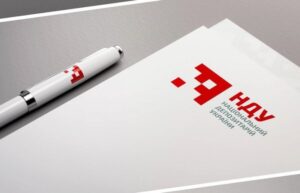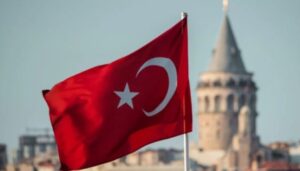
Marina Adamovskaya, who has been deputy chair of the board since June 2019, will become the new chair of the board of the National Depository of Ukraine (NDU, Kyiv). She will replace Alexei Yudin, who has been chair of the board since June 2021. According to a statement by the National Depository in the NSSMC disclosure system on Tuesday, this decision was made by the depository’s shareholders at an extraordinary meeting on December 24.
According to the statement, until Adamovskaya’s candidacy is approved by the National Securities and Stock Market Commission, Alexei Tarasenko, who has been a member of the NDU board since 2016, will serve as acting chairman.
The meeting also appointed Gennady Zhurov to the board, who in 2019-2022 was the head of projects and programs of the Payment Infrastructure Oversight Department of the Payment Systems and Innovative Development Department of the National Bank of Ukraine, and most recently worked as a senior consultant at Ukr-Resheniya LLC and Growth Solutions Partners.
In addition, the meeting re-elected Vitaliy Milentyev (independent) and representatives of the National Bank of Ukraine Yuriy Geletiy and Andriy Suprun as members of the supervisory board of NDU, and replaced two other independent members of the supervisory board – Vitaliy Lisovenko and Oleksiy Kiy were replaced by Oleg Mistyuk and Olena Dyatlova.
Mistyuk and Dyatlova are also independent members of the supervisory board of the Settlement Center, which is controlled by the National Bank, and Mistyuk is also an independent member of the supervisory boards of the state-owned Polygraph Combine Ukraine and Sens Bank.
In addition to managing 25% of the state’s shares in NDU, as of September 24 this year, the National Bank directly owned 25%, while the state-owned Oschadbank and Ukreximbank owned 24.9903% and 9.9903%, respectively. At the same time, the NSSMC appoints the trustee for the shares of Oschadbank, Ukreximbank, and the NBU’s corporate pension fund, but this provision of the law on the depository system is expected to be changed in the process of infrastructure reform.
Another 4.0795% of shares were owned by 27 legal entities and two individuals, in particular, Elena Nusinova owned 1.7054% of shares, and Odessa Privatization Center LLC, owned by former NSSMC member Viktor Ivchenko, owned 1.7151%.
As of the beginning of 2025, the NBU also owned 83.549% of the Settlement Center’s shares and managed another 1.441% on behalf of the state. State-controlled Oschadbank, Ukreximbank, Ukrgasbank, Sens Bank, and PrivatBank owned 3.208%, 3.208%, 3.222%, 0.319%, and 0.0005%, respectively, while the NDU owned 0.080% and other shareholders (1 individual and 22 legal entities) owned 4.973%.
The chairman of the supervisory board of the Settlement Center is Suprun, who since October this year has also been a member of the supervisory board of the NDU, replacing the representative of the NSSMC.

Paris topped Euromonitor International’s ranking of the most attractive cities for tourism and has held the top spot for the fifth consecutive year, the company said in a press release following the publication of the Top 100 City Destinations Index 2025.
According to Euromonitor’s estimates, Paris welcomed more than 18 million international visitors in 2025, partly due to the restoration of Notre Dame Cathedral. Madrid, Tokyo, Rome, and Milan also made it into the top five, with the top five remaining unchanged for the second year in a row.
Euromonitor notes that international arrivals in the top 100 cities in 2025 increased by 8% to 702 million, with the largest increase in the Asia-Pacific region (+10%). Bangkok became the leader in terms of international visitors (30.3 million), followed by Hong Kong, London, and Macau.

In Spain, foreign property buyers have slowed down a bit, but they’re still the main drivers of the market – especially folks from the UK, Germany, and the Netherlands.
According to the Spanish property registry, foreigners purchased nearly 23,700 residential properties in the third quarter of 2025, which is 4% less than in the same period in 2024. The share of transactions involving non-residents fell to 13.6% from 14.9% a year earlier, but is still about 36% higher than the average for the last ten years.
Who is buying: top nations in the Spanish housing market
In the third quarter of 2025, the largest groups of foreign buyers were:
Among other important buyers in the third quarter, moderate growth was recorded from Romania and Morocco, while demand from France, Italy, Belgium, and Poland declined slightly. Interest from buyers in the US and Morocco remained close to last year’s level. Demand from the Russian Federation and China fell significantly, by approximately 34% and 23%, respectively.
The full picture for 2024
According to the summary data for 2024, foreigners bought about 93,000 residential properties in Spain, accounting for about 14.6% of all transactions on the market. This is one of the highest figures in the history of observations.
According to the results for 2024, the main national groups are as follows:
Thus, the top ten in terms of purchase volume is primarily made up of Europeans – British, Germans, Moroccans, Dutch, Romanians, Italians, French, and Poles, supplemented by buyers from China and Ukraine.
Regions that attract foreigners
The most popular regions among foreign buyers remain the Mediterranean coast and islands: the Valencian Community, Andalusia, Catalonia, the Balearic Islands, and the Canary Islands. They account for the vast majority of foreign purchases, and in some provinces, such as Alicante and Malaga, the share of foreigners in the total volume of transactions reaches 30-40%.
What does the correction in demand mean?
Experts view the slight decline in the number of transactions in the third quarter of 2025 as a technical correction after a record-breaking 2024 rather than a reversal of the trend.
The share of foreigners remains significantly higher than the pre-crisis average, and Spain continues to attract buyers with its combination of climate, relatively affordable prices, and developed infrastructure.
At the same time, the structure of demand is gradually changing: the positions of the British and Germans remain strong, but buyers from the Netherlands, Central and Eastern Europe, and North Africa are playing an increasingly prominent role. For the local market, this means that the high proportion of foreign buyers will remain, but with greater diversity in terms of nationalities and sources of capital.
Source: https://open4business.com.ua/hto-z-inozemcziv-lidyruye-z-pokupky-zhytla-v-ispaniyi-analiz/

PrivatBank has put up for auction on the Prozorro.Prozori electronic trading system the right to lease a sports infrastructure complex, which includes the Dnipro Arena stadium and a football training base with an indoor field.
According to the information in the system, the starting rent is UAH 2,698,700 per month (including VAT), the deadline for submitting bids is January 27, 2026, and the auction itself is scheduled for January 28, 2026.
It is also noted that the lease is offered for a term of one year with automatic renewal, the minimum price increase is set at 1%, and the security deposit is UAH 1,619,200.
According to the bank, the transfer of property for lease is carried out within the framework of the Strategy and Operational Plan for the Management of Problem Assets approved by the Supervisory Board, and the proceeds from the lease will be used to increase the bank’s financial results and, accordingly, the amount of taxes and dividends paid to the state budget.
Dnipro Arena is a European-class football stadium in Dnipro, renovated and opened in 2008, with a capacity of 31,003 seats. The football arena has a 105×68 m field, changing rooms, warm-up rooms, a gym, coaching rooms, rooms for media representatives, referees, a 296-seat VIP box, a 550-seat restaurant, and parking lots for athletes, staff, and spectators. The football field has a heating system, automatic irrigation, and artificial lighting for evening matches.
The training base is located in a forest park area in the Prydniprovsk district of Dnipro. Built in 1971, it was renovated in 2010. The training base includes three artificial and four grass fields, an indoor football field with artificial turf and stands for 506 seats, a cottage town for footballers to live in, and two office and residential buildings, including a medical and rehabilitation center, a conference room, rooms for coaching staff meetings, a swimming pool, a gym, a sauna, and showers.
As reported, the auction for the sale of the Dnipro Arena stadium and the former training base of the Dnipro football club, scheduled for October 30, 2025, did not take place due to a lack of bids. The initial cost of the lot was UAH 150 million, the guarantee deposit was 5% of the starting price (UAH 7.5 million), and bids were accepted from September 30 to October 29, 2025.
PrivatBank is Ukraine’s largest state-owned bank. According to the National Bank, PrivatBank’s total assets reached UAH 842.3 billion as of November 1, 2025.

Ukrainians are not among the ten largest groups of foreigners with valid residence permits (RP) in Turkey as of December 25, 2025, according to the latest statistics from the country’s migration service.
According to the agency’s data, as of that date, there were a total of 1,137,023 foreigners residing in Turkey on the basis of a residence permit.
Citizens of Turkmenistan (166,292) and Azerbaijan (90,942) lead the way, followed by citizens of Syria (77,709) and Iran (73,534). Russians rank fifth in this rating (72,548 thousand), which means they have lost their leading position amid the growth of other countries’ share.
In terms of types of residence permits, the migration service indicates that as of December 25, 2025, short-term residence permits amounted to 419,759 thousand, student permits – 216,564 thousand, family permits – 166,539 thousand, and other categories – 333,969 thousand.
The primary source of this data is the current statistics section of the Turkish Migration Service (Göç İdaresi Başkanlığı) with an update date of 12/25/2025.